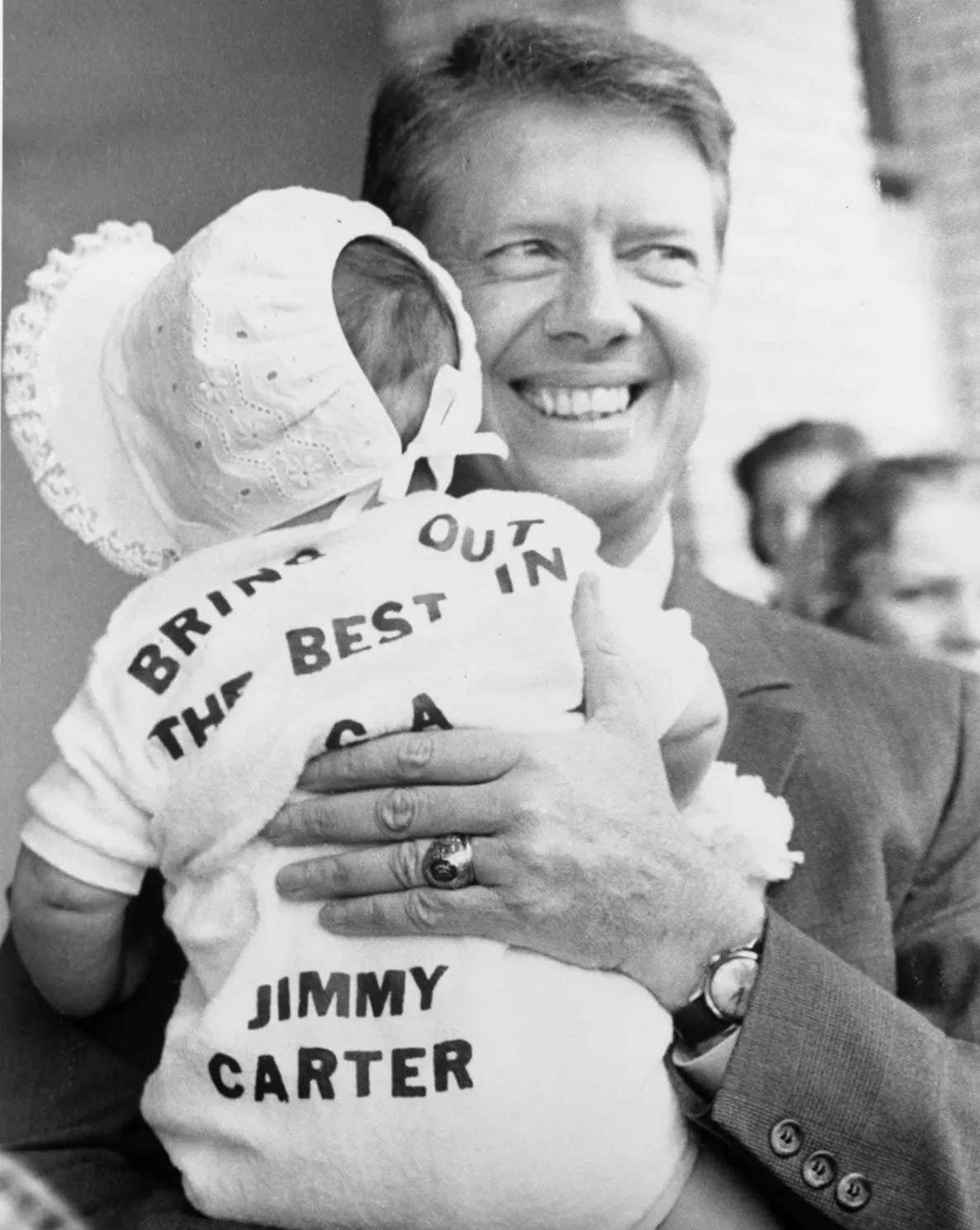Hello Smarty, It's a Veep Debate BookWag!
The Public Servant: Jimmy Carter on the campaign trail (Carter Family Archive).
Dear Wags,
Today is the 100th birthday of Jimmy Carter. His 1977-1981 White House stint was marked by the Camp David Accords and rocked by crises. I’m just old enough to remember that, but Carter’s political record rarely comes up anymore. His dedication to public service transcends a brief tenure in the Oval Office.
The former president and his wife Rosalynn, who died in 2023, cofounded the Carter Center, which works to alleviate global human suffering. (He was also famously committed to Habitat for Humanity.) In 2002, he was awarded the Nobel Prize for promoting civil rights, democracy, and peace. Carter is the only U.S. president to win a Nobel after leaving office.
Carter went into hospice care in 2023. All he wants for his birthday is to cast a vote in the 2024 presidential election, which says a bit about his commitment to democracy. Whether you watch or skip tonight’s vice presidential debate, strain to imagine that such a humble figure briefly led the free world.
The 39th president was the subject of an exceptional biography, His Very Best, by
Jonathan Alter. He’s also written many books himself—works of memoir, reflections on aging and faith, and the inevitablechildren’s book. Long after Camp David, Carter remained committed to resolving the Israeli-Palestinian conflict. He believes in Israel’s right to exist and in Palestinian self-determination. His bookPalestine: Peace Not Apartheid kicked up a furor (not least for its title). Carter weathered criticism and continued to engage with both sides.
You don’t have to agree with Carter to grasp his fundamental decency. He was not born into great wealth or blessed with powerful connections. After growing up in Plains, Ga., he entered the Naval Academy, then returned home and turned the family peanut farm into a successful business. Carter became active in politics during the civil rights era. He believed in integration but mostly steered clear of the issue until elected governor in 1971. In his inaugural address, he declared: "The time for racial discrimination is over,” shocking many supporters. A devout Baptist, he let his conscience guide him in all things—including the presidency.
Carter was crushed by charismatic Ronald Reagan in 1980. A not-insignificant factor in that electoral defeat was his inability to put on a show. When it came to rough-and-tumble politics, his humility got in the way.
Weeks before another presidential election, we should hail his sober model of leadership. Americans love show business—the razzle-dazzle Reagan took to the next level. James Earl Carter Jr. seemed to run despite his ego, not because of it. He failed at a second term but kept helping people just the same. Defeat was, in fact, just the beginning of his greatness. On his birthday, remember some are in the game not to show off, but to serve.
Yours ever,
BKP
The Mighty Red by Louise Erdrich
At any time, North Dakota’s Red River can overflow its banks. Erdrich works that into a magical metaphor in her novel about a white high school jock who falls in love with a Goth Native American classmate named Kismet. The girl’s mother and most of her community work to plant, harvest, and process sugar beets, a subject the author (The Beet Queen) knows well. Erdrich gives us another fable set in a hard-pressed rural Midwest. Her political themes resonate, but it’s her understanding of human relationships makes for timeless storytelling.
The Bog Wife by Kay Chronister
The Haddesleys of West Virginia live on the edge of a boreal cranberry bog, but it’s not a place to harvest fruit for Ocean Spray. For generations, the family has buried their patriarchs in the swamp, and every Haddesley son has married a woman who mysteriously emerges from the bog. Chronister blends Gothic horror with a multi-generational family saga. The current head of the family is dying, and his five heirs must figure out who will take over when he’s gone—it’s like an episode of Succession with a supernatural twist.





